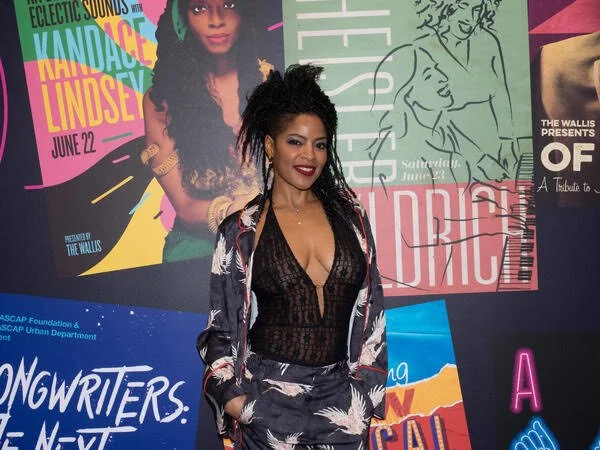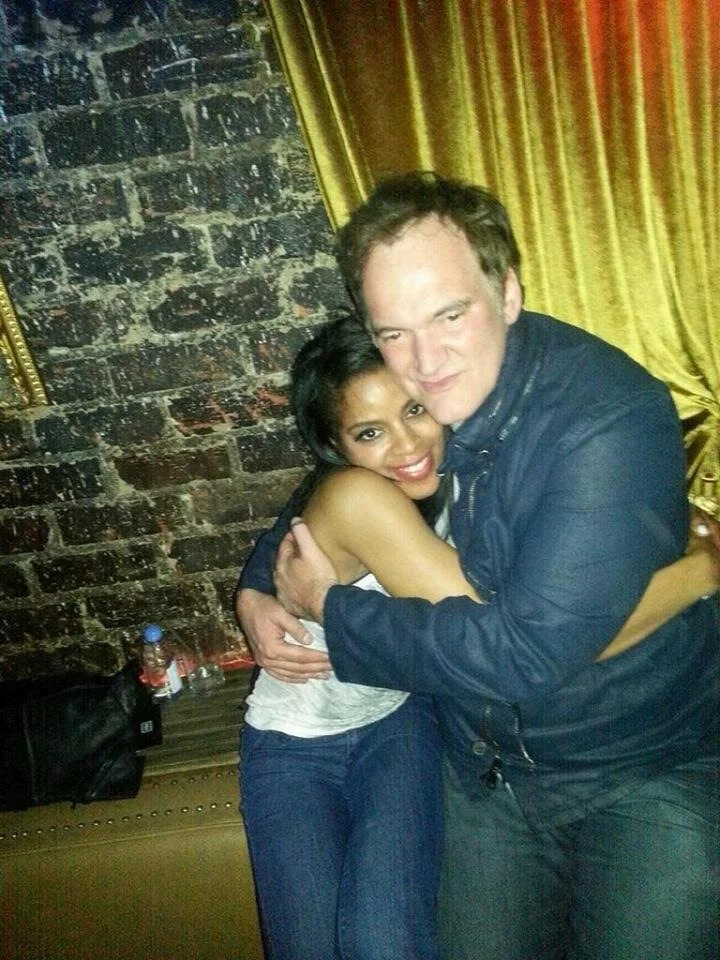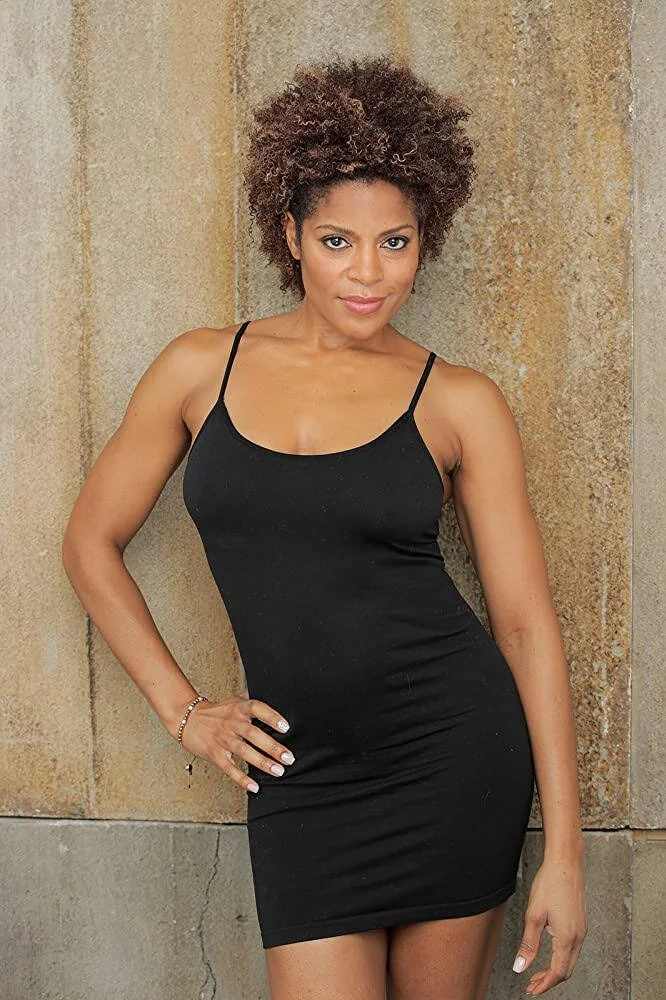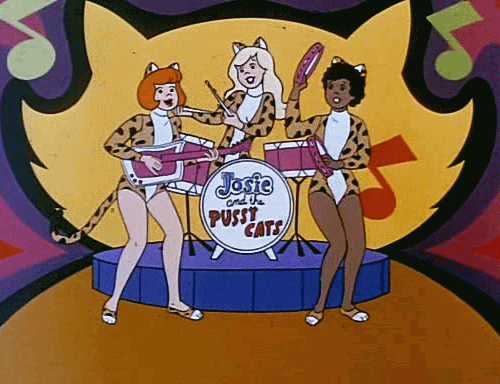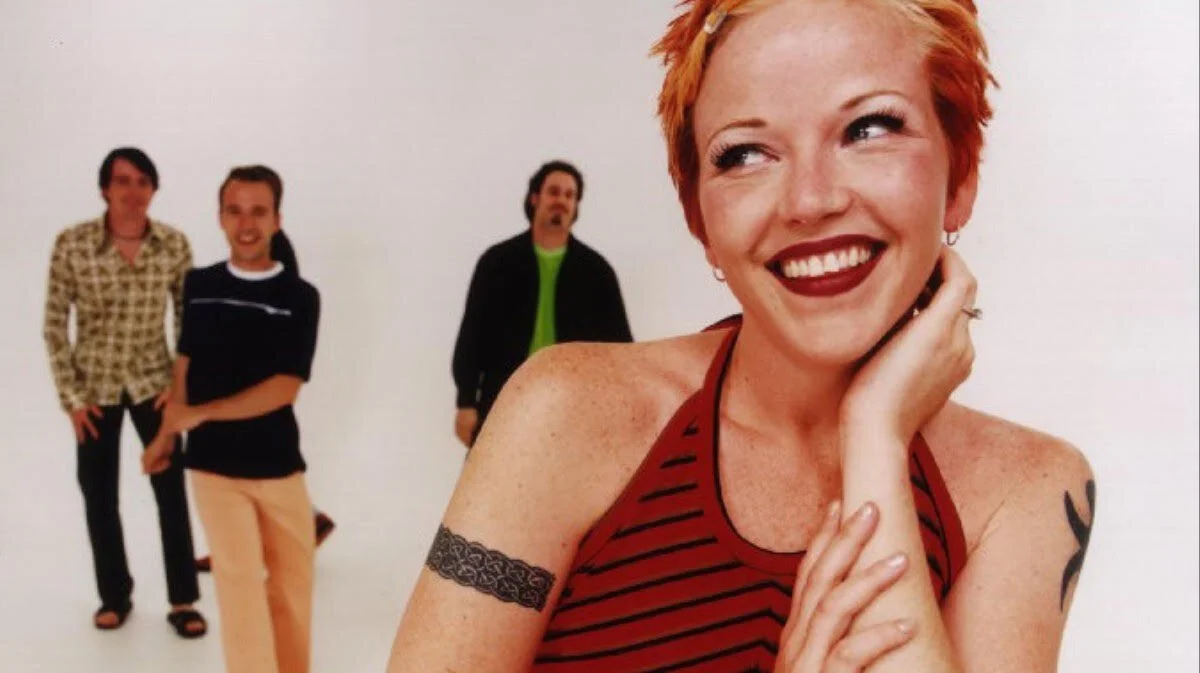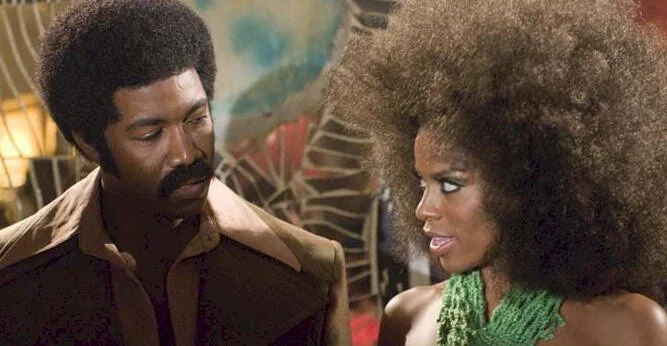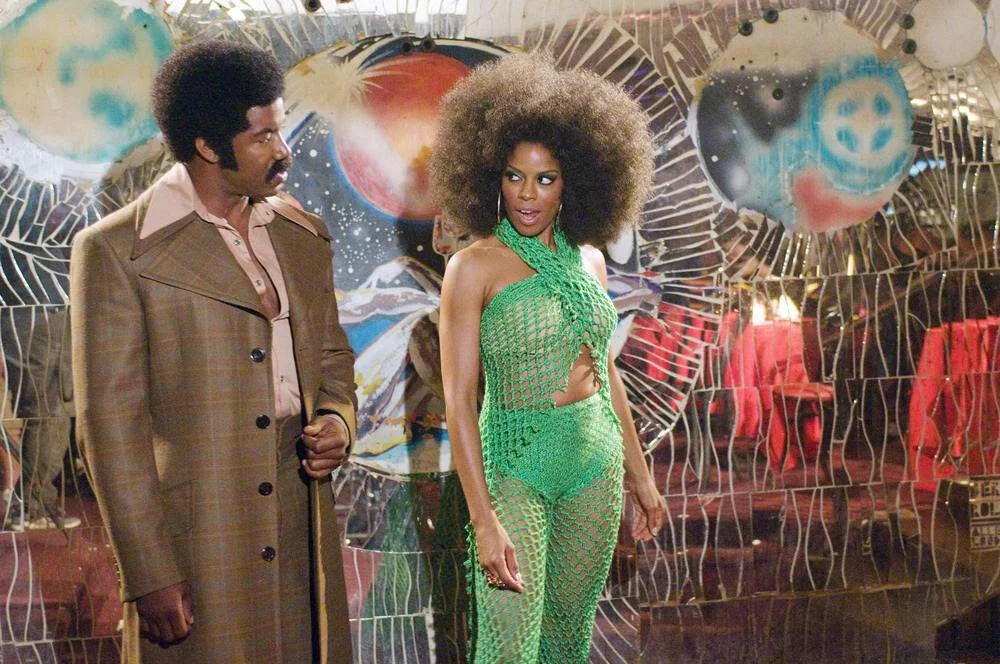Bonus: Meet The OG Singing Voice Of Josie: Dee Dee Dionne Gipson
The voice of Letters To Cleo’s Kay Hanley became synonymous with Josie And The Pussycats when the film debuted, but in a sliding doors moment there was nearly another Josie writes Maria Lewis.
Dee Dee Dionne Gipson is a Swiss Army Knife person, which is to say she has a myriad of different talents and skillsets. Some might be familiar with her from NCIS, Pee-wee's Big Holiday or – the beloved and extremely hilarious blaxploitation satire – Black Dynamite where she plays Afroditey (and also sings the song Shine on the soundtrack). Some might know her from the stage, whether it’s Edward Scissorhands: A Musical Parody or For The Record: Tarantino. To a very specific group of people, however, she’s known as the original singing voice of Josie McCoy from the 2001 cult classic Josie And The Pussycats. Letters To Cleo frontwoman Kay Hanley is, of course, the voice we all know and love almost 20-years after the movie was released in cinemas. Yet initially it had been Dee, who was recruited by the soundtrack’s executive producer Kenny ‘Babyface’ Edmonds.
“In 1995 I was one of the creators of a band called Edith’s Wish and we were pretty popular,” says Dee. “We were a rock band, but we were all black, all female, and we all played instruments. We were a big deal in Atlanta and all up and down the South East. So we had worked with so many different people and one of the first people that wanted to sign us was LA Reid and Babyface and they had a record label at the time called LaFace … Long story, we went through the whole long process, bidding wars, we never went with Babyface and LA but Babyface always kept me in the loop as well as LA because they really loved the band and were always wondering what we were doing.” Even though Edith’s Wish had signed with another label instead of LaFace – in a deal that would eventually fall apart and see the group disband – Dee had clearly stayed on the minds of the two seminal producers and songwriters. So much so that one day when Babyface called her up years later, out of the blue, she didn’t believe it was him. “He goes no, it’s really me,” she laughs. He would go on to tell her about the upcoming film version of Josie And The Pussycats, which was being directed by Deborah Kaplan and Harry Elfont.
“He was like ‘yeah, they need a voice for the character Josie and they want you to sing all the songs, I told them about you, I let them hear your music, they love your voice’,” says Dee. “I want you to come out and I also would love for you to write on the album as well’ - because I had been writing other songs that they had heard when I was in the band.” It’s hard to track down a lot of Edith’s Wish’s early stuff, but from the snippets available online – like track Lose The Sun – it’s easy to hear how it connects with what they were going for on the Josie And The Pussycats soundtrack and how Dee fits with the other musicians working on that project like Counting Crows and Letters To Cleo.
They flew Dee out to LA, where she worked in the recording studio for three and a half weeks and recorded four songs, while also co-writing tracks Come On and You Don’t See – the album’s sole lower tempo track. “That’s my speciality,” she says. “I’m great at rock ballads and singer/songwriter ballads. Back in the day I was into Jewel and Lisa Loeb and Alanis Morissette and I really learned a lot about songwriting from them, they were so good.” The writing experience “was awesome” says Dee, with the team working alongside her on the music consisting of Dave Gibbs and Adam Duritz from Counting Crows, Jane Wiedlin from The Go Gos (who bestowed Dee with a signed guitar pick) and the late, great Adam Schlesinger from Fountains Of Wayne. “He was just so kind to me, really so kind to me because it was a lot of pressure,” she said of the Oscar nominee, who passed away on April 1, 2020 from complications due to coronavirus. “I was a black girl being the voice of a white, kind of punk rocky (sound) is what they were going for on Josie And The Pussycats. You know, I was rock, I was not punk rock per say but I was definitely rock.” In promotional material for Edith’s Wish, Dee and the other members of the band would “purposefully” blur their silhouettes so no one would know they were all women. “I would be mistaken a lot of times for white rock singers, which I guess is why they were trying to put my voice on to this album,” she says. “So for me it was a lot of pressure and Babyface, he and his wife Tracey Edmonds were the executive producers, we recorded everything in his studio. It was a lot of pressure on them too, I think, bringing a black person in to an all-white environment. We were the only black people, me - Babyface and Tracey – everybody else was Caucasian and doing Caucasian music. I definitely felt the pressure.”
That feeling was not imagined: Kay Hanley felt it too when she would come in a few weeks after Dee, neither one knowing about the other until years later. It was after going in to the studio every day, recording and writing for nearly a month that Dee got a call from Babyface telling her to take the day off. “He’s like ‘listen, there’s a whole bunch of craziness going on at the studio so I want you to sit tight today’,” she says. “I could feel the energy and it was pretty strange. So I sat out that day and then I was just thinking ‘I wonder what’s going on?’ … Being a black girl, you know, that’s our lens a lot of times to see the world through, whether people are gonna accept us or not and you either dwell on that or push it to the back of your mind. You just keep going forward and making your mark and making a trail – so sometimes you just throw it way back there. I just thought ‘oh lord, I hope my voice is right for the project’ but in the back of my mind I was like ‘maybe it’s too black’ or ‘it’s too white sounding’ or too this or too that, you know, a million things so you just shut it off and wait.” One day became two, then three, the weekend passes and she’s still not getting any answers about what’s happening. Yet Dee had a suspicion, as she’d had an uncomfortable encounter at a party while working on the soundtrack with someone else who was working on the project too.
“Person X, who was involved in the project, took me to a party at Adam Duritz’s house and we were all there,” she says. “I kinda had a sketchy feeling about him anyway … so we get there and we’re all talking and then he starts to have a conversation about how I’m feeling working in this situation and what else have I done and have I ever sung rock before. The questions are all leading to this ultimate question of ‘do you like doing this? Is this something that you really want to do?’ And I’m like ‘yeah, this is exciting! Are you kidding me?’ This is amazing! … This conversation kind of veered towards talking me out of it and he said ‘well. I have a girlfriend who sings this type of stuff, it’s really her style’. I guess he was dating someone who he was trying to get into this position as the singer – that’s what it was feeling like to me … it was very under-cutty.”
And that person who was getting flown in to sing for Josie after Hanley left? That was Person X’s girlfriend, the one Dee had said she thought she was getting hustled out of the way for. “Here’s the thing, at the time I was doing a lot anyway and it’s funny with artists, as long as they’re busy, they’re less grumpy,” says Dee. “I had gotten back into acting too so I was doing a couple of films that year, so one thing kinda helped you forget about the other thing that didn’t work out. The best thing to cure not booking something is booking something else, you just move on. The only bitterness I had was … someone just tell me what’s going on, because I had kind of felt it anyway, the energy you know? When someone’s rooting for you and they love you – you know the difference … When that certain person invited me to that party and was sideways hustling me and was throwing his girlfriend up there like that, it pissed me off a lot. He was trying to do a slick move: you invite me to a party to really try and talk me out of being there so you can get your girlfriend the job? That was not cool.”
“Also the other thing that wasn’t cool was I never got paid. Never got paid. There was a lawyer that called me to talk about a deal and I was supposed to get paid a certain amount of money, a nice little amount of money, and I never got money for it. Never. I get little residuals here and there, but there’s nothing of what I was supposed to get on the front end … I didn’t have a manager at the time so there’s a lesson there in not having anyone in my corner to make sure this deal went down.” Although she was flown out to LA, with her flights and accommodation covered along with a per diem, Dee was never paid for the singing or writing sessions.
When Hanley came in originally just for band camp with the girls, songwriting, backing vocals, Dee was still the singing voice of Josie but the two women never actually met.
They were fans of each other’s work though, with Hanley having heard Dee’s voice over and over again when she listened to early cuts of the songs. The vocals were hella impressive, which was one of the reasons she was told was why Dee was off the project. “The reason they let go of the original Josie wasn’t because she wasn’t good,” says Hanley. “It was because she was too good. Like her voice was amazing and you just couldn’t see it coming out of Rachael’s mouth.” Dee too agreed when she saw the finished product up on the big screen in a theatre just after the movie came out. “When I hear it, she was absolutely perfect for Josie And The Pussycats – perfect!” she says. “I love Kay’s voice on it, I thought she was amazing. I was like okay, lemme fall back – she was great, I get it.” Although the movie was a critical and commercial flop at the time, Dee immediately got what it was trying to achieve. “You know a lot of people didn’t like it, but it was awesome,” she says. “I loved the movie. I was like, too bad I wasn’t on it, but I did get to write a little bit on there.”
This article is a written version of the Josie and the Podcats bonus episode The OG Josie. Josie And The Podcats is a limited podcast series hosted by best-selling author, screenwriter and journalist Maria Lewis, and produced by Blake Howard of One Heat Minute. New episodes release every Sunday, with bonus episodes during the week.
